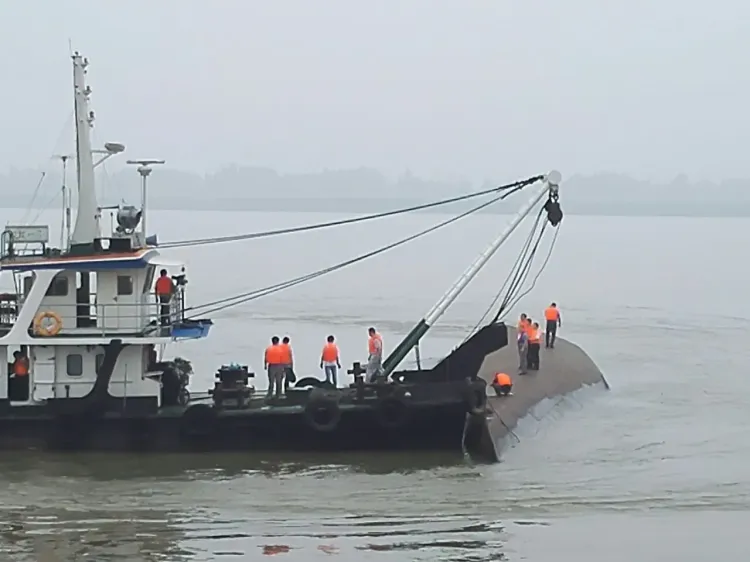Have Plastic Nurdles from the Sunk MSC ELSA 3 Container Ship Off Kochi Coast Raised Alarms for the Gulf of Mannar?

Synopsis
Key Takeaways
- Nurdles pose a serious threat to marine ecosystems.
- Current ocean movements are spreading the pollution.
- Authorities are formulating an emergency response plan.
- This marks India's first significant nurdle spill.
- Cleanup operations for nurdles are extremely challenging.
Chennai, May 29 (NationPress) Concerns regarding the environment are escalating after the container ship MSC ELSA 3 sank off the coast of Kerala. This incident has resulted in the washing ashore of plastic nurdles—small pre-production plastic pellets—in Tamil Nadu’s Kanniyakumari district, which poses a significant threat to the ecologically sensitive Gulf of Mannar.
The Liberia-flagged vessel sank on May 25, approximately 38 nautical miles off the coast between Vizhinjam and Kochi.
It was transporting 640 containers, including 13 categorized as hazardous, as well as substantial amounts of diesel and furnace oil.
This incident has resulted in a widespread distribution of cargo, including plastic pellets, throughout the Arabian Sea.
In a troubling turn of events, large quantities of nurdles packaged in 25-kg bags started appearing on the beaches of Kanyakumari by Wednesday afternoon.
These pellets had previously been reported along the shores of Thiruvananthapuram earlier this week.
Authorities suspect that the prevailing ocean currents are pushing the spill southward, threatening the fragile ecosystem of the Gulf of Mannar on the eastern coast.
The Gulf of Mannar is a vital marine biosphere reserve, home to coral reefs, seagrass meadows, dugongs, and sea turtles.
Experts caution that if the nurdles continue to drift eastward, the impact on this sensitive ecosystem could be catastrophic.
Although plastic nurdles are not inherently toxic, they pose serious environmental risks.
Due to their small size and resemblance to fish eggs, they can be easily ingested by marine animals, resulting in internal blockages, malnutrition, and even death.
Nurdles are also capable of absorbing toxic pollutants from seawater, which may enter the marine food chain and potentially affect human health.
Unlike oil spills, which can often be contained and cleaned, nurdles are buoyant and highly mobile. Once dispersed by tides and wind, they become nearly impossible to recover, complicating cleanup efforts significantly.
Officials from the Tamil Nadu State Disaster Management Authority, the Department of Environment, and the Tamil Nadu Pollution Control Board are collaborating with local authorities to develop an emergency response plan.
Meanwhile, a fact-finding committee established by the Union Environment Ministry gathered in Thiruvananthapuram on Wednesday to evaluate the situation.
This incident marks India’s first significant plastic nurdle spill due to a shipwreck.
A similar event occurred in May 2021 off the west coast of Sri Lanka, releasing 1,680 tonnes of plastic pellets into the sea, but at that time, ocean currents spared the Gulf of Mannar from contamination.
aal/rad









